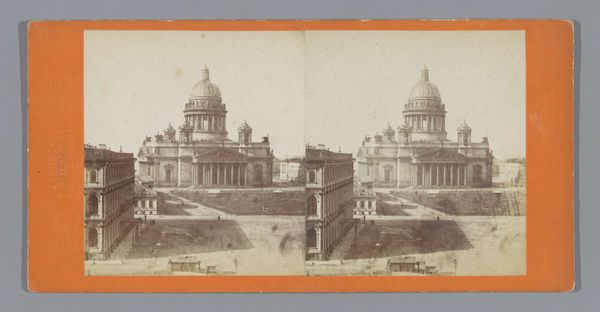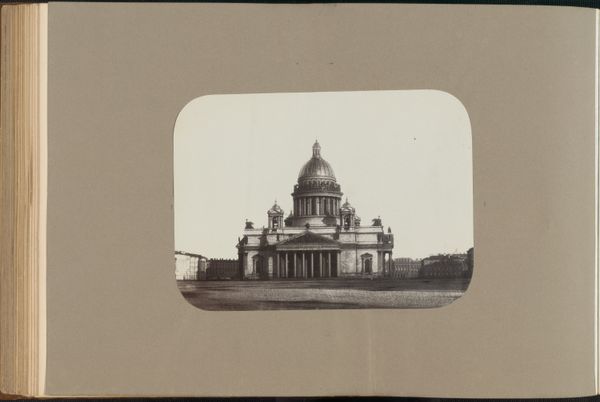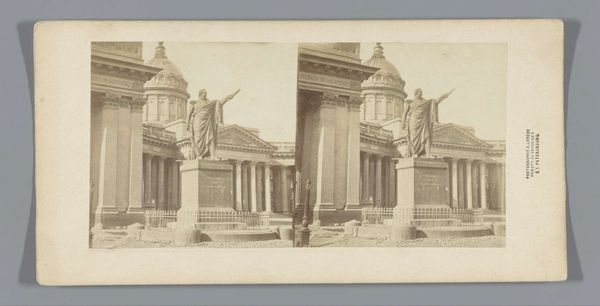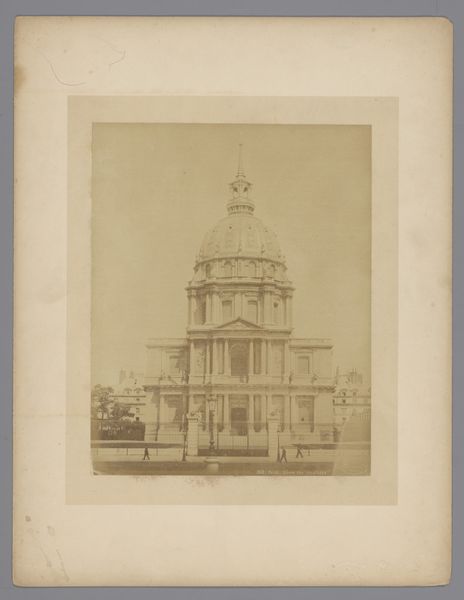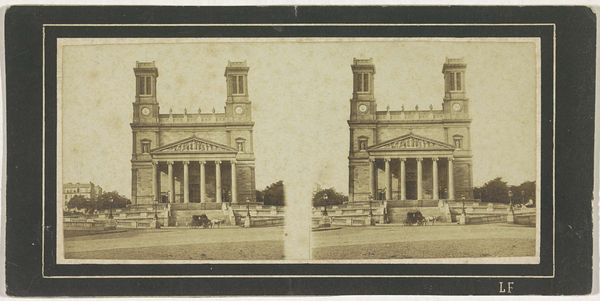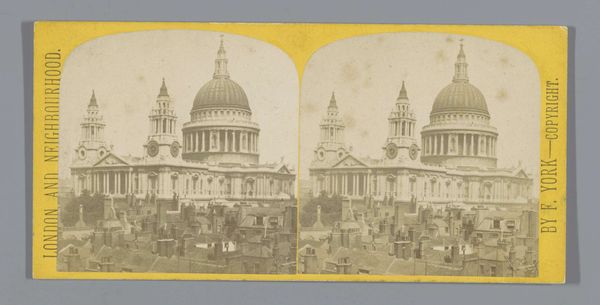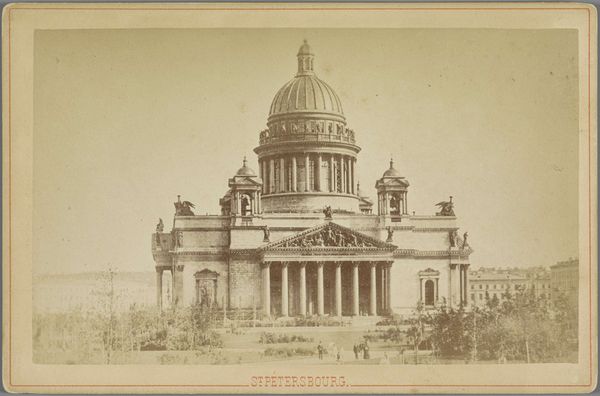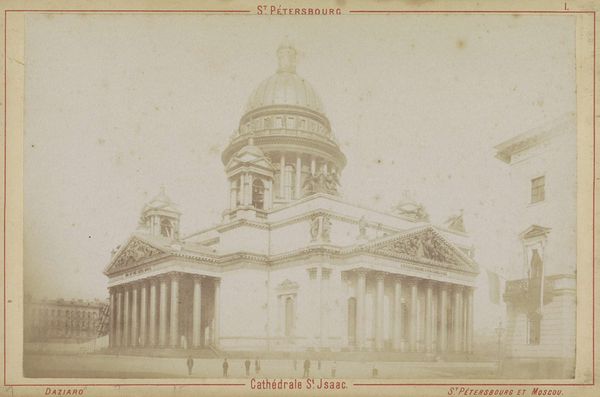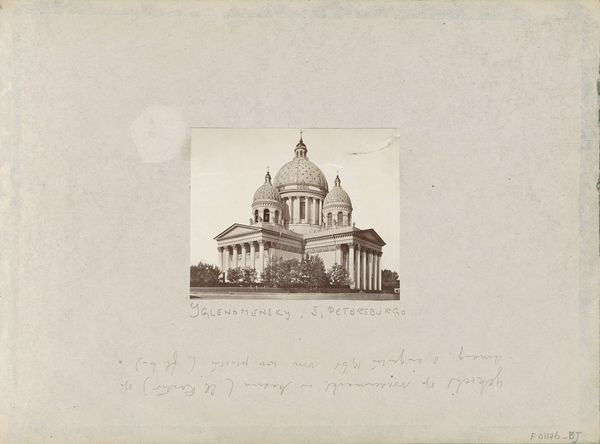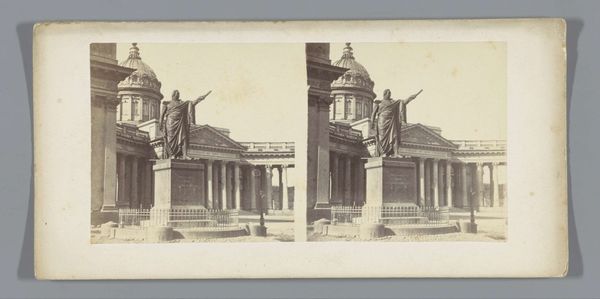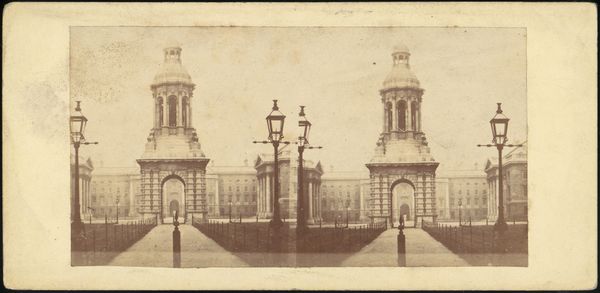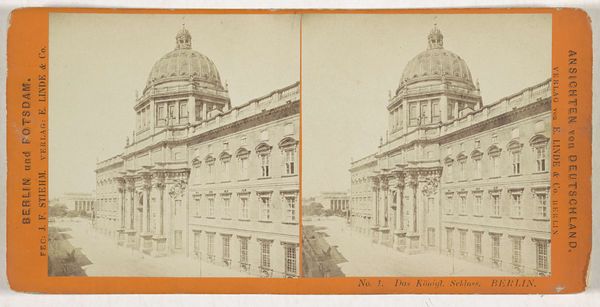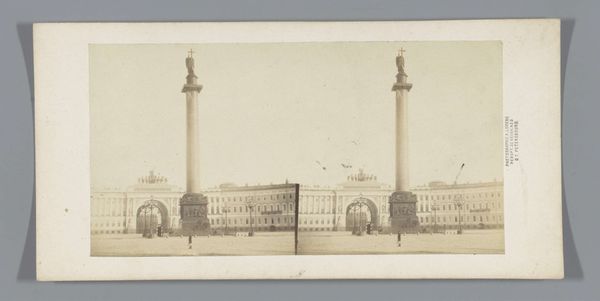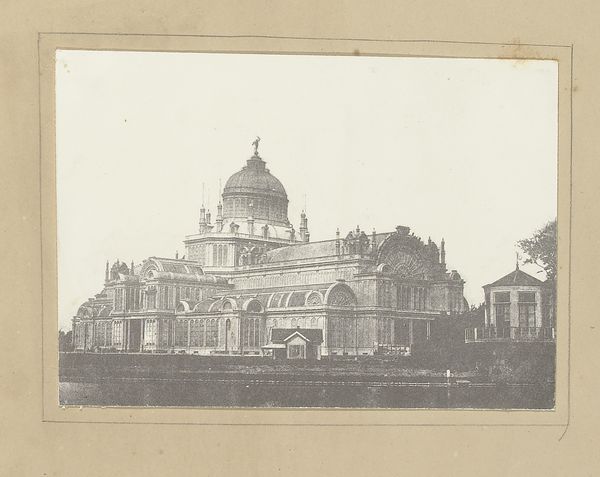
print, photography, gelatin-silver-print
#
byzantine-art
# print
#
photography
#
orientalism
#
gelatin-silver-print
#
cityscape
#
realism
Dimensions: height 85 mm, width 170 mm
Copyright: Rijks Museum: Open Domain
Editor: This is a gelatin silver print from circa 1860 to 1880 titled "View of St. Isaac's Cathedral in St. Petersburg" by Alfred Lorens. It looks like a stereoscopic image, like something you'd view with special glasses. The composition, the sheer repetition of the cathedral, makes me think about mass production, even though it’s a photograph of a unique structure. What do you see in this piece? Curator: This photograph offers a fascinating glimpse into the social and political context of 19th-century Russia. Consider the act of photographing the cathedral, particularly producing it as a stereoscopic image. Who was the intended audience? Editor: Presumably tourists, or people who couldn’t travel to Saint Petersburg themselves? Curator: Exactly. This image becomes a commodity, a way to experience a place through visual consumption. Think about what the cathedral itself represents. St. Isaac's was a potent symbol of imperial power, directly linked to the Romanov dynasty and its ambition to project an image of Russia as a major European power, and even a "Third Rome" by co-opting Byzantine forms. The very act of photographing and disseminating its image solidifies that message. Editor: So it's not just a picture; it's about power and how power is visually communicated? Curator: Precisely. The photograph also reflects the rising middle class, increasingly able to afford such mementos of travel and culture. What socio-political narrative does that create? Also, given the context of "Orientalism", is there something happening here through its inverse, where Russia positions itself in opposition to other non-Western geographies by highlighting its imperial grandeur and architecture? Editor: Wow, I hadn't thought about the implications of mass-producing and marketing such an image like that. Thanks for providing context. Curator: Understanding photography through a historical and cultural lens adds many more layers to the experience. Now, let’s consider other pieces through this expanded scope.
Comments
No comments
Be the first to comment and join the conversation on the ultimate creative platform.
